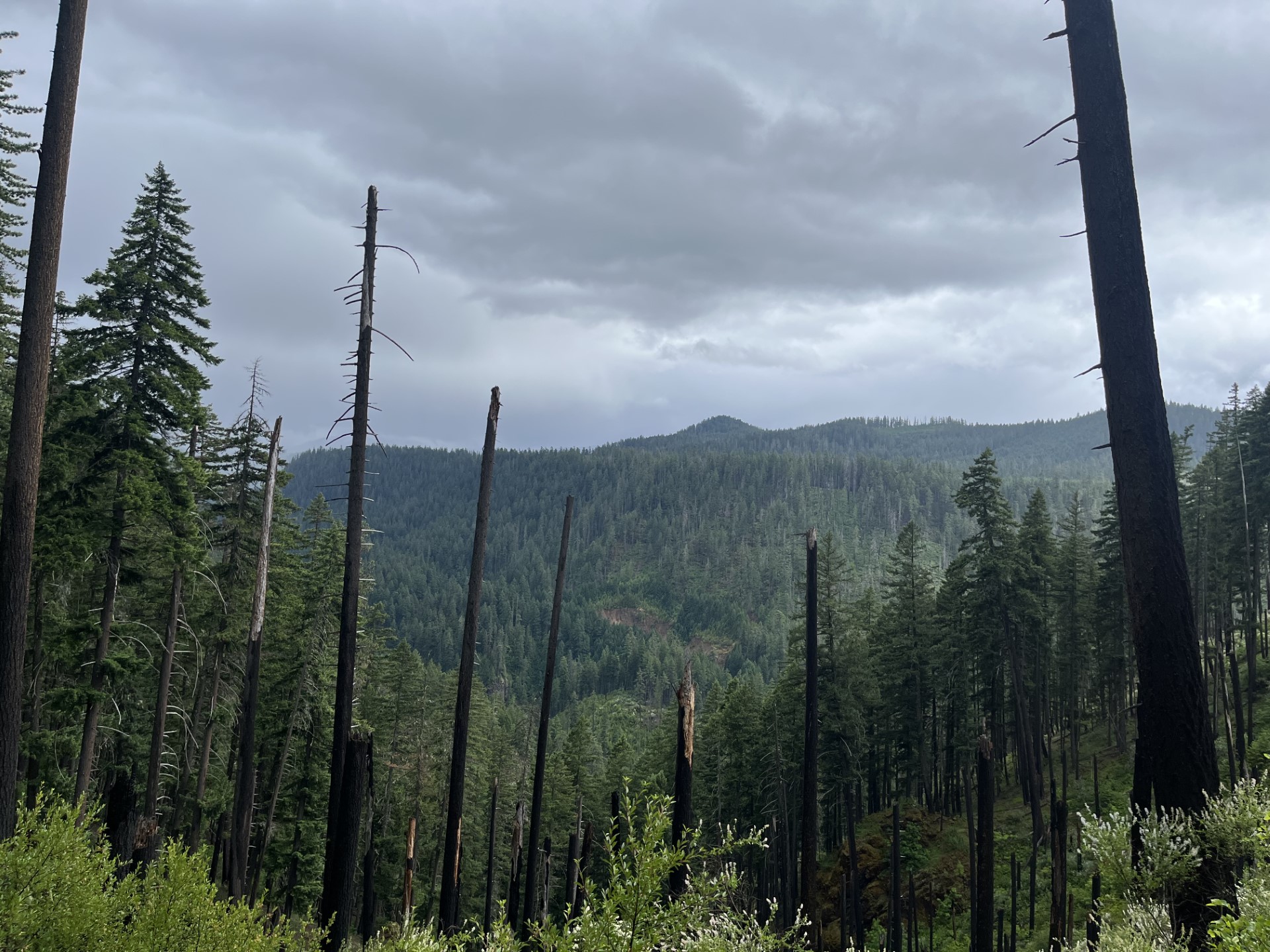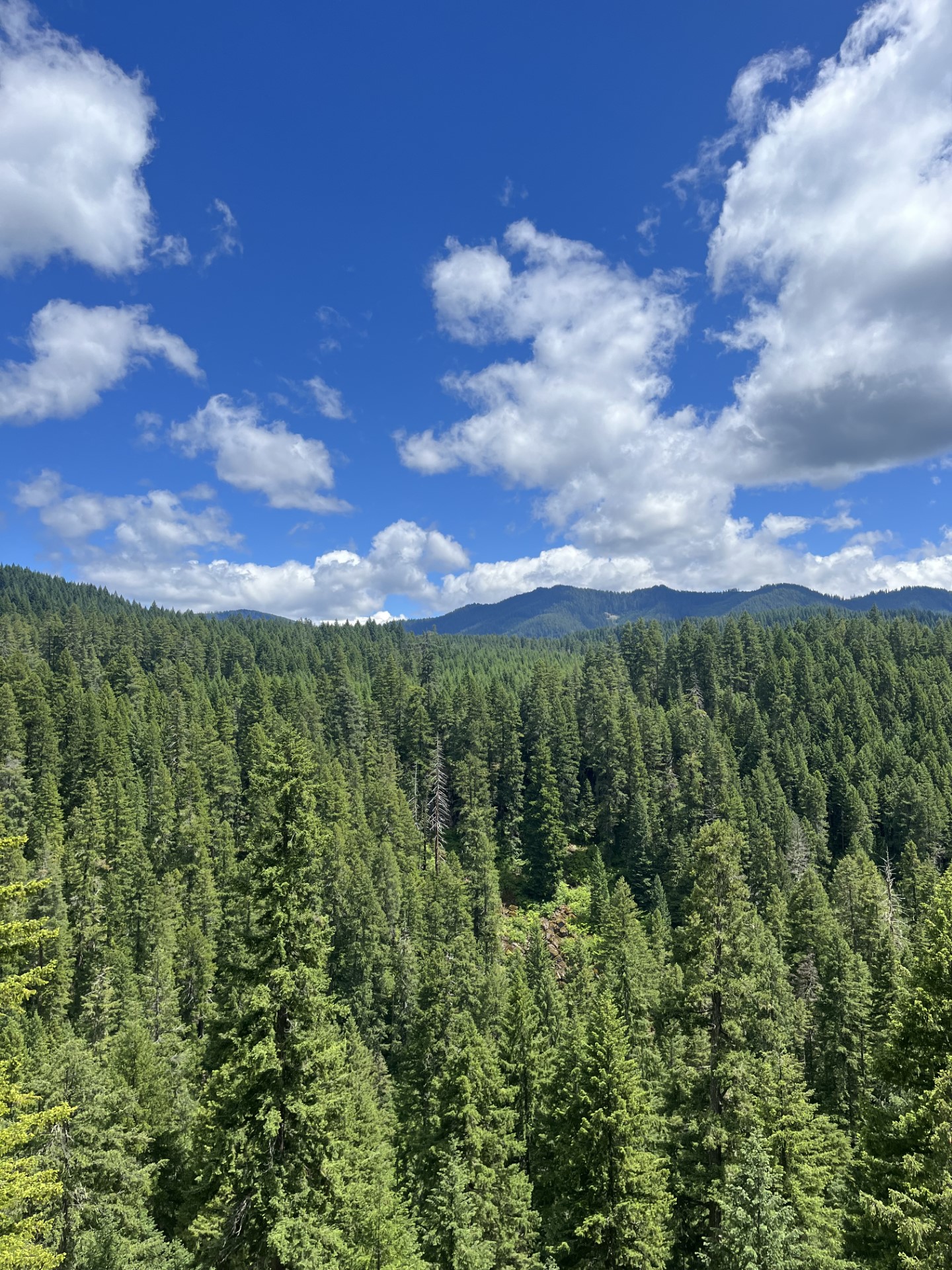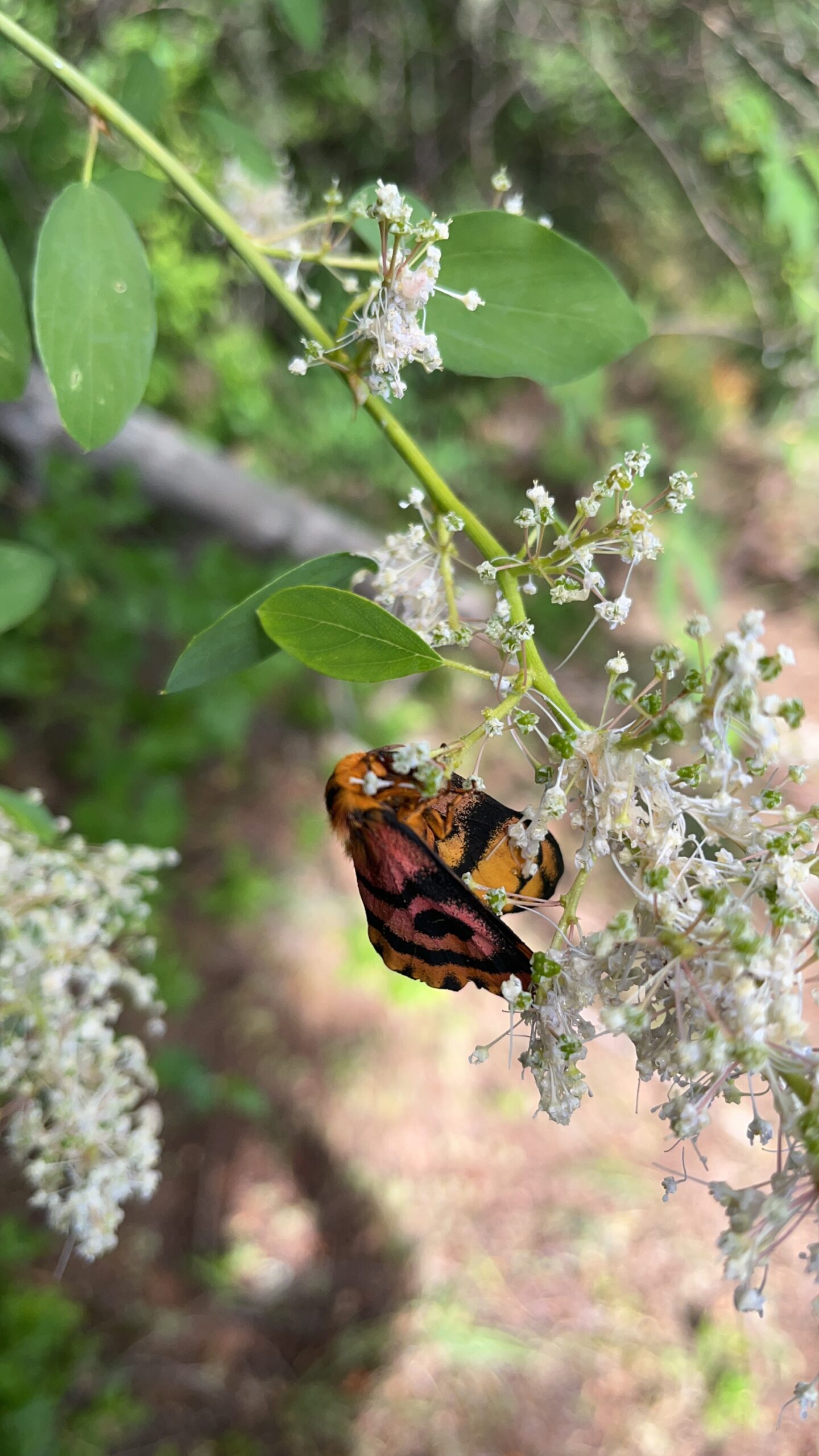Umpqua National Forest, a land of many tall trees and rushing waterfalls, has become my home for the next six months. It was initially terrifying having just graduated school and moved across the country, however, now it has all become so familiar. Everyday visits from the blue jays and other winged pleasantries are an everyday occurrence that starts the day with a sense of joy and peace. One of the things about moving across the country and living all by yourself post-graduation is a journey of self-discovery. Something you may have once held true twists and turns and becomes a completely different reality when you’re abreast with the solitudinous of nature. Being immersed with the entities that this planet calls its children puts into perspective the true purpose of oneself. A quote from Anne Frank reads, “I firmly believe that nature brings solace in all troubles.” As you enter the grand domain of nature you start to find those worries and anxieties that you hold so tightly to your chest peel away as if they were never there in the first place. Personally, living within the natural world has helped quell an incredibly anxious time of existential dread. Umpqua National Forest has become the perfect antidote for this never-ending disease.

Besides the philosophical transformation taking place within the forest, I have been put to work and have made great progress in plans to collect seeds. My co-intern Casey and I have begun to map different collection points for the particular collection species native to Umpqua, my personal favorite being the yarrow. Although we have begun to make progress, much of our duties insofar have been delegated to the removal of invasive species such as himalayan blackberry, scotch broom, and certain thistles. Most of our days include mapping of treatments for invasives and getting stabbed by himalayan blackberry while treating. As well, we have also had the luxury of doing rare species monitoring at Tiller Ranger Station, climbing Mt. Fuji in the Willamette National Forest to identify White bark pine, and plenty of other out of the ordinary training opportunities. One especially important to me was being able to get my felling and bucking license after not being able to get it the previous summer. I’m sure there will be plenty more training opportunities in the future for us to capitalize on.

Lastly, I feel it is important to talk about the incredible coworkers that I have that are making this experience that much better. Everybody who I have run into at the Botany Department has helped me in some sort of way whether it be in plant identification or just making me feel welcomed. As everybody knows coworkers can make or break a job. I can tell that mine are going to make it better. Until next months post…
(Some extra pictures to finish off the post)



